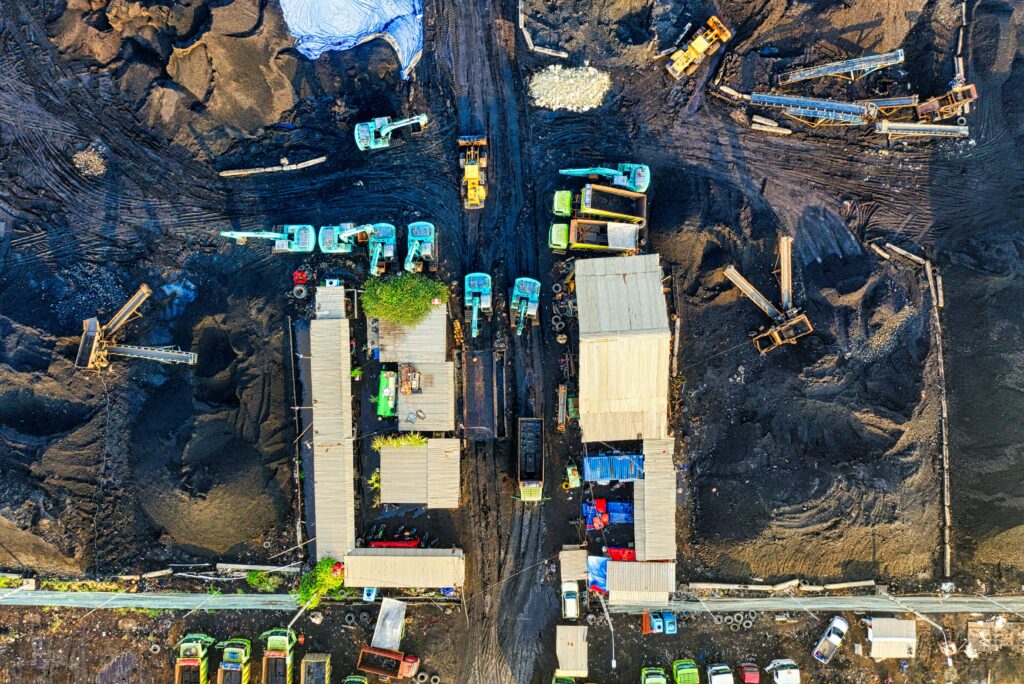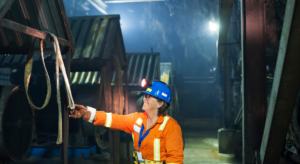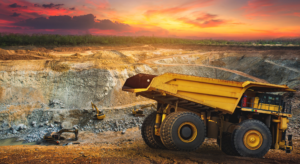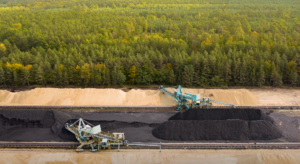Mining has always played a major role in the economic progress across the world. This is particularly the case in resource-rich developing nations. Nevertheless, chasing mineral wealth has always had a cost. In this case, the cost stands to be the society and the environment. So, as developing nations strive to use mining operations in growth, socially responsible mining is an absolute necessity.
The crucial imperative is not just limited to ethical considerations but moral ones as well. It holds the key to equitable and enduring prosperity. As a result, developing nations can strike the right balance to achieve sustainable mining through some responsibilities and averting some challenges. In this article, we will look at socially responsible mining from a deeper lens.
The Multifaceted Impacts of Mining
If mining operations are carried out without the necessary supervision and protections, there may be negative results. Furthermore, they can come in various forms. It includes exposure to chemicals, harm from machinery, environmental degradation, displacement of indigenous populations, neglect of other sectors, and more. Let us take a closer look:
Hazards to Workers
Mining activities pose numerous hazards to workers. Workers may be exposed to asbestos fibers, silica dust, diesel exhaust, polymeric compounds, and other potentially dangerous materials. Even with personal protective equipment worn, this can still harm skin or organs. The loud noises produced by heavy machinery, explosions, and drilling are common features of the mining area. Tinnitus and moderate to severe hearing loss are the results. In addition, handling explosives and operating huge machinery in cramped areas raise the possibility of mishaps and injuries.
Environmental Degradation
Irresponsible mining gives way to environmental degradation. The constantly occurring deforestation, soil erosion, water pollution, and disruption of delicate ecosystems pose threats. This is to the long-term viability of the surrounding areas. Furthermore, mining operations can also cause a lot of greenhouse gas emissions. It makes climate change’s consequences worse.
Indigenous Communities
Indigenous populations are especially susceptible to the negative consequences of mining operations since they have coexisted peacefully with their lands for many centuries. These communities frequently face the loss of their traditional hunting and gathering areas, the forcible relocation from their ancestral homes, and the degradation of their way of life and cultural legacy. The difficulties these communities confront can also be exacerbated by the entrance of mining activities, which may cause social unrest such as a rise in crime, drug misuse, and the exploitation of weaker social groups.
Embracing Socially Responsible Mining Practices
Socially responsible mining requires some practices on its side to mitigate any negative consequences. So, in this section, we will look at some of the practices ahead:
Changes in Mining Operations
Ensuring sustainable and socially responsible mining operations involves implementing several changes. It includes:
- Improving visibility with ample lighting and headlights,
- Ventilating harmful gases through efficient systems,
- Maintaining equipment in good condition through regular cleaning and inspections,
- Managing vibration and noise levels to prevent hearing loss and cave-ins,
- Watching for dust hazards and using vacuums and scrubbers,
- Enforcing rigorous safety standards and regulations,
- And accounting for extreme temperatures that can impact worker safety and health.
Most importantly the oversight that all regulations are followed stands to be at the core to make sure operations stay safe.
Environmental Supervision and Sustainable Practices
Environmental sustainability and responsible mining methods go hand in together. As per “Responsible Mining in Developing Countries” by Atkinsons Bullion, mining firms have to give priority to implementing cutting-edge, environmentally beneficial technologies. It includes:
- Remote mine inspection using robots and 3D scanning to minimize human exposure to unstable environments
- Sensor-based management systems to monitor air quality, automate lighting and energy systems, and facilitate predictive maintenance.
- The use of digital twin technology. It creates virtual representations of mining assets and environments. As a result, it can enable the simulation of critical scenarios and aid in risk mitigation.
Mining companies should also focus on the rehabilitation and restoration of the areas mined. It ensures that the land can support alternative economic activities and sustain local ecosystems. Moreover, this includes removing the excess waste safely and replacing native soil and vegetation. Sustainable and socially responsible mining practices involve reusing mining waste for productive purposes. It includes the construction, and recycling of metals to minimize energy consumption and environmental impact.
Furthermore, adopting eco-friendly equipment such as battery-powered and durable machinery reduces carbon footprint. Additionally, accurate accounting of toxic waste is crucial. It ensures proper disposal and prevents illegal dumping that can harm wildlife and communities.
Economic Empowerment and Shared Benefits
An ideal way to go parallel with socially responsible mining is to make sure the benefits of mineral extraction are distributed to local people. There are multiple ways to achieve this. It includes revenue-sharing arrangements, community development programs, and local job possibilities.
Mining firms can contribute to the creation of sustainable economic possibilities. They can also enhance the general standard of living for the residents of the mining regions. This is by funding infrastructure development, healthcare, and education. In the long run, communities can be empowered to diversify their economic activities and lessen their reliance on mining. This is by supporting local entrepreneurship and capacity-building initiatives.
Respect for Human Rights and Labor Standards
Socially responsible mining requires a firm to commit to upholding human rights. It also requires adhering to international labor standards. So, mining companies should ensure their operations do not cause any human rights violations. Moreover, an effective grievance mechanism should be there. It allows the workers and community members to report any violations and seek redress. Additionally, a collaboration should be one with local authorities to address broader social issues.
Also read: How to automate lithology identification in drill cores with AI?
Overcoming Challenges and Fostering Accountability
The implementation of socially responsible mining is not without its challenges. This is especially the case in developing nations where limited resources and governing structures are there. So, to overcome these obstacles certain elements should be there. Let us look at those ahead:
Strengthening Regulatory Frameworks and Enforcement
The development of strong regulatory frameworks that control mining operations and ensure adherence to social and environmental norms must be given top priority in developing countries. Governmental institutions, civil society groups, and the mining sector must work together to create comprehensive policies and guidelines that take into account the particular difficulties that each region faces.
To make sure that mining firms follow these rules and fulfill their social and environmental obligations, strong monitoring and enforcement systems must be in place in addition to open reporting and accountability procedures. Public disclosure of mining activities and independent third-party audits can both increase openness and foster community trust.
Building Institutional Capacity and Expertise
Many developing countries lack the institutional strength and technical know-how needed to properly control and oversee mining activities. It is essential to fund capacity-building projects, such as training courses for public servants, environmental inspectors, and community leaders, to guarantee efficient monitoring and application of socially conscious mining operations.
Furthermore, cultivating collaborations with global organizations, research centers, and seasoned mining firms can expedite the exchange of knowledge and aid in the creation of optimal methodologies customized for regional settings. The access to modern technologies and creative solutions that promote sustainable practices can be taken through these collaborations.
Promoting Responsible Investment and Financing
An important factor in encouraging socially conscious mining operations is ethical investment and financing. Investors and financial institutions ought to include environmental, social, and governance (ESG) standards in their decision-making procedures, giving investments in mining firms that exhibit a sincere dedication to sustainability and social responsibility a top priority.
Investors can encourage good change and influence sector behavior. This is by aligning funding decisions with these principles. This can also help mitigate possible risks connected with unethical mining operations. Developing countries should also look at cutting-edge finance options like impact investment and green bonds to raise money for socially responsible mining initiatives that support more general socioeconomic development objectives.
To Sum Up
If developing countries want to capitalize on the mineral resources while protecting the environment and welfare of the people, socially responsible mining is no longer an option but a necessity. The elements that we have discussed in the article will help you take this initiative forward. However if want to learn more about sustainable mining practices, innovation or new developments in the field then make sure you attend the 5th Mining 4.0: North America 2024 in Toronto, Canada on 10-11 April 2024. The event will shed light on topics like robotics and automation, connected mines, technology-driven sustainability, and more. It will be through sessions, panel discussions, networking opportunities, and more. So, make sure you register right away!





